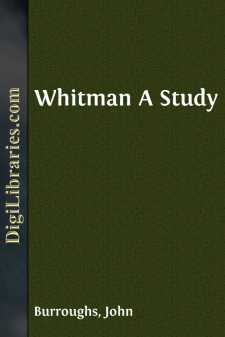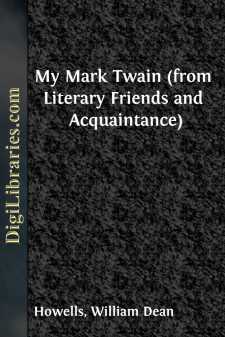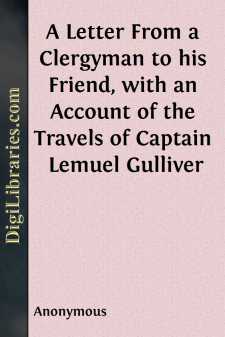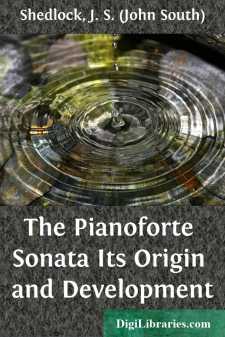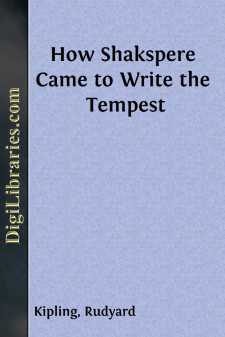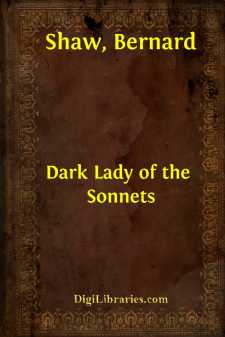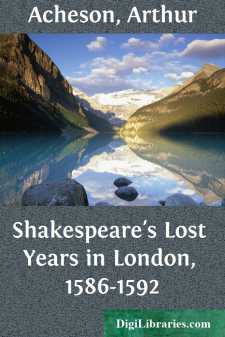Literary Criticism
- American 18
- Ancient and Classical 3
- Asian 1
- Australian & Oceanian 1
- Books & Reading 8
- Caribbean & Latin American 2
- Drama 2
- English, Irish, Scottish, Welsh 49
- European 7
- General 37
- Horror 1
- Humor 2
- Jewish 2
- Medieval 2
- Middle Eastern 3
- Poetry 7
- Renaissance 6
- Russian & Former Soviet Union 1
- Shakespeare 27
Literary Criticism Books
Sort by:
by:
John Burroughs
PRELIMINARY I The writing of this preliminary chapter, and the final survey and revision of my Whitman essay, I am making at a rustic house I have built at a wild place a mile or more from my home upon the river. I call this place Whitman Land, because in many ways it is typical of my poet,—an amphitheatre of precipitous rock, slightly veiled with a delicate growth of verdure, enclosing a few acres...
more...
It was in the little office of James T. Fields, over the bookstore of Ticknor & Fields, at 124 Tremont Street, Boston, that I first met my friend of now forty-four years, Samuel L. Clemens. Mr. Fields was then the editor of The Atlantic Monthly, and I was his proud and glad assistant, with a pretty free hand as to manuscripts, and an unmanacled command of the book-notices at the end of the...
more...
by:
Anonymous
INTRODUCTION We have a Book lately publish'd here which hath of late taken up the whole conversation of the town. Tis said to be writ by Swift. It is called, The travells of Lemuell Gulliver in two Volumes. It hath had a very great sale. People differ vastly in their opinions of it, for some think it hath a great deal of wit, but others say, it hath none at all. John Gay to James Dormer (22...
more...
CHAPTER I INTRODUCTORY In history we find certain names associated with great movements: Luther with the Reformation, or Garibaldi with the liberation of Italy. Luther certainly posted on the door of the church at Wittenberg his famous Theses, and burnt the Papal Bull at the gates of that city; yet before Luther there lived men, such as the scholar Erasmus, who have been appropriately named Reformers...
more...
INTRODUCTION. When a small impression of these quaint old books issued from the Chiswick Press, many years ago, under the auspices of the late Mr. S. W. Singer, that gentleman merely designed the copies struck off for presentation to a select circle of literary friends who, like himself, felt a warm interest in every relic of the past which helped to illustrate Shakespeare and ancient English manners....
more...
by:
Rudyard Kipling
INTRODUCTION Mr. Kipling’s brilliant reconstruction of the genesis of the ‘Tempest’ may remind us how often that play has excited the creative fancy of its readers. It has given rise to many imitations, adaptations, and sequels. Fletcher copied its storm, its desert island, and its woman who had never seen a man. Suckling borrowed its spirits. Davenant and Dryden added a man who had never seen a...
more...
"It would be hard to name a better commonplace book for summer lawns. . . . The lover of poetry, the lover of gardening, and the lover of quaint, out-of-the-way knowledge will each find something to please him. . . . It is a delightful example of gardening literature."—Pall Mall Gazette. "Mr. Ellacombe, with a double enthusiasm for Shakespeare and for his garden, has produced a very...
more...
by:
Walter Crane
WALTER CRANE 1893 See handwritten text Mr Dallas's reproductions of my pen drawings for this work appear to me to be very faithful & successful in preserving the touch & general character of the originals. I have to certify that I have printed 650 copies of each of these eight subjects designed by Walter Crane, and engraved in Dallastype Facsimile by myself. Six Hundred Copies are for...
more...
by:
Bernard Shaw
How the Play came to be Written I had better explain why, in this little piece d'occasion, written for a performance in aid of the funds of the project for establishing a National Theatre as a memorial to Shakespear, I have identified the Dark Lady with Mistress Mary Fitton. First, let me say that I do not contend that the Dark Lady was Mary Fitton, because when the case in Mary's favor (or...
more...
by:
Arthur Acheson
CHAPTER I INTRODUCTORY The most interesting and important fifteen years in the records of English dramatic literature are undoubtedly those between 1588 and 1603, within which limit all of Shakespeare's poems and the majority of his plays were written; yet no exhaustive English history, intelligently co-ordinating the social, literary, and political life of this period, has ever been written....
more...


